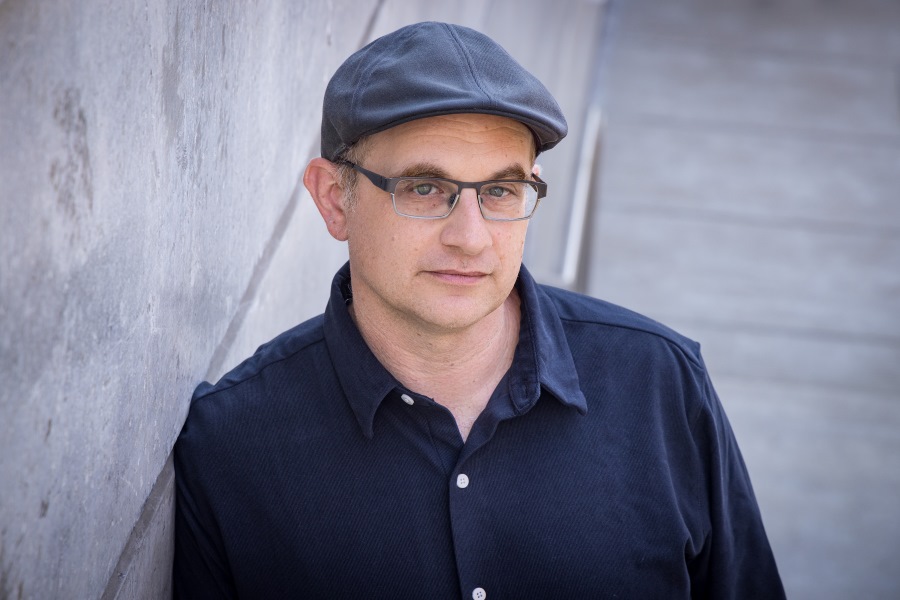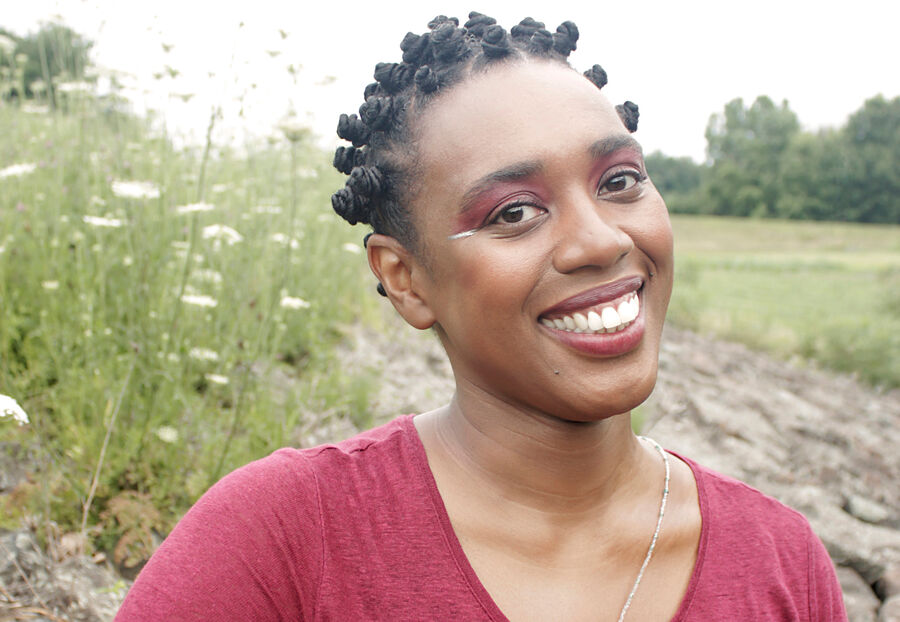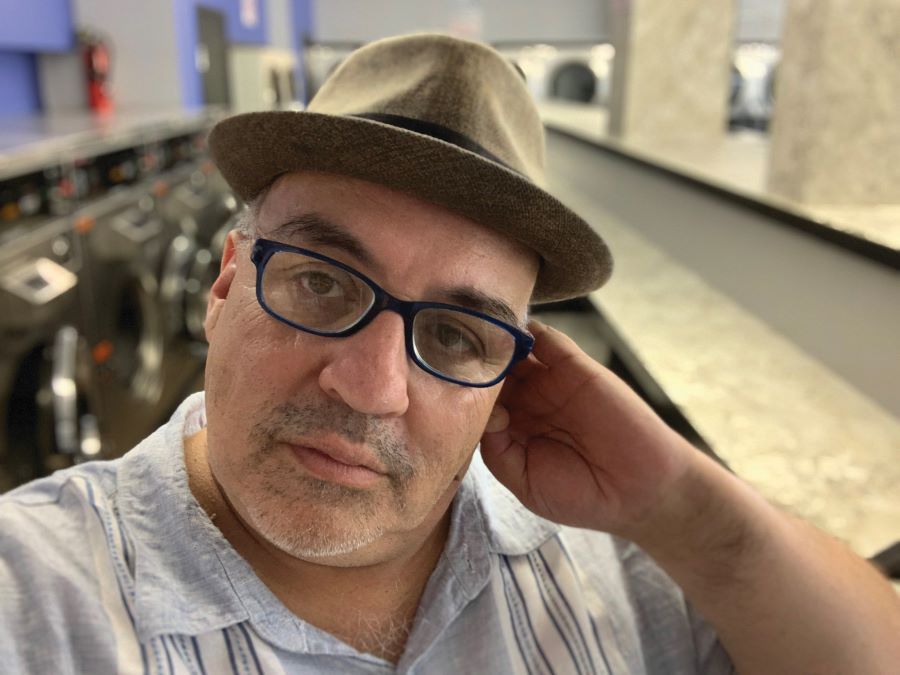Jonathan Spector’s play Eureka Day follows several contentious parents’ meetings about vaccine policies at a Berkeley private school. Originally staged in 2018, the play is currently running on Broadway at the Manhattan Theatre Club. He spoke before rehearsals began—and before the 2024 presidential election—with the play’s director, Anna D. Shapiro, as she recovered from Covid.
ANNA D. SHAPIRO: It’s hysterical to me that I’m talking to you from my Covid sick bed. It made me think about this play, and how long you’ve been living with it and where it started, in terms of what questions you were asking with it, and where you find yourself as it’s about to go to Broadway. Have the questions shifted? Has your focus shifted?
JONATHAN SPECTOR: In a weird way, it’s both the same and different. When I began working on it, I was really just trying to write a very Berkeley play about a very specific place and a very specific group of people. The reason vaccine skepticism seemed like an interesting thing to explore was because, at that time, it was the one issue where you could have people who basically all agree about everything except for this one thing. In doing research, I had spent a lot of time in the dark recesses of weird message boards and grappling the strange beliefs people had. This was also in the lead up to the 2016 election, so it was also a scary moment of realizing how the whole country was living in these two very separate realities. So that was informing it. But it still felt very particular to the place, and also to an issue that, unless you happen to have school-age kids or a new baby, you probably didn’t spend a lot of time thinking about. It felt very private—like, this is a play for Berkeley, about Berkeley, made by people in Berkeley, on an issue I had become obsessive about but most people don’t really care about that much.
To have it sort of explode out to be, like, an issue the entire world is obsessed with was very strange. Although there’s also a way in which this may be a perfectly goldilocks moment to be doing it. In the pre-Covid period, it had three or four productions, and people at that time were more able to see the vaccine debate as sort of a metaphor for democracy and society. Two years later, when theatre was just coming back, it seemed like all anybody could see was it being somehow a play about Covid. But now we’re in this very weird place where we’re “over” Covid—but obviously not, since you have it—and we’re trying to navigate this strange space of making choices, individually and collectively, about balancing the needs of society to get back to life and the need to allow people who are immunocompromised to exist in society. We’re in this place of nobody really being sure anymore what the answers are to those questions, and everybody kind of navigating it differently, and people still feeling very intensely on one end of the spectrum or the other about what everyone should be doing. I think that makes it an interesting time to do the play.
At the same time, the experience of watching the play with an audience is very similar to the experience of watching it with an audience pre-Covid. The audience is responding to the same moments in the play in largely the same way. Which makes sense, because people react to specific things humans do onstage and not to their shifting feelings about abstract ideas on viruses and public health.
In reading and rereading the play, it’s reminding me how linked now our identity is to our belief, and the crisis that exists now around who we are being linked to what we believe. Where is nuance allowed? How do we stay away from dogmatism? The people in this play are struggling toward something beautiful—for a place where everybody’s okay. Yet the question that keeps getting begged is, who gets to decide what everybody being okay is? What does everybody being okay mean? I think about that a lot now. I’ve encountered so many people throughout Covid where I thought I shared every political position with them in the world, until it came to vaccinations, and then I found out they didn’t believe in them. Not only did they not believe in them, they actively didn’t believe in them. So what do you do when there are these outliers who just blow everything up? I feel like that’s what the play wrestles with a lot.
Yeah, and with how these past eight years have changed us—the acceleration of how media and technology work, and how the algorithms create a reinforcing mechanism that makes us believe that almost everybody thinks exactly like we do about everything. This makes it much more jarring than it used to be to encounter somebody who doesn’t think like you do. It’s hard to remember, but I feel like 15 years ago, you would talk to somebody at an airport bar and you did not assume you were gonna have the same view about anything and that was fine, whereas now I think we have become very apprehensive about people who don’t believe the things that we believe. There’s the concern of where this whole chain of belief is going to lead; if you believe that the health risks of vaccines are being hidden as part of an enormous conspiracy, what else could you potentially believe? If you’re in a conspiracy theory frame of mind, then you’re supporting Robert F. Kennedy Jr. for president, and then suddenly you’re supporting Trump because he’s endorsed him. It’s a very easy slippery slope to fall down. But of course, everybody feels that way about everybody else.
I’m not gonna pretend that I don’t think certain things are right and certain things are wrong. I believe in vaccinations. I believe in creating herd immunity. But for the first time in my adult life, I love people who don’t believe that—I would, except for the vaccination part, trust them to take care of my children. I trust their ethics. I trust their spirit. And yet this is just stopping my brain. So where do you draw the line? Where is the bridge not buildable?
As with most things, I blame the internet and social media for this—our sense of how important it is that we believe something or get somebody else to believe it. We can get into these vociferous fights with people, or just be like, “I can’t engage with this person because this issue is so important, and I will end this relationship with this person over it,” as though convincing that person to see that you are right is actually going to impact the issue in any tangible way. Occasionally, it might! But that’s extremely rare.
Has there been anything surprising to you in the responses to the play, or anything you heard that made you change things in it?
I don’t know if it surprised me, but I didn’t know how people who don’t vaccinate their children would respond to the play. I have mostly been pleasantly surprised that those people feel like, “Yes, my point of view is represented authentically—I feel like everybody’s ganging up on me all the time and not treating me fairly, and that’s what’s shown in the play.” I appreciated that. I would rather hear that than somebody say, “Oh, these are all bad straw-man arguments, that’s not what I really think.”
Something I’ve been thinking about, but I don’t know what to do with, is the range of responses based on where the play has been done. It’s such a gift to get any production of any play at all, and then to get a second production is amazing. It’s this incredible privilege to have had multiple productions that I’ve gotten to be involved with and learn from and think about. Getting to see the play live through so many productions is like one of those dreams where you discover there are extra rooms in your house you didn’t know were there. It’s like, “These have been here the whole time?” You begin to form a very different kind of relationship to the play. Whereas if a play has only had one or two productions, the play and production become kind of inseparable.
In the very first production in Berkeley, it was such a lovely little gem, and so well received. But the question I had coming out of that was: This was great, but is it just because people like seeing themselves onstage? Is anybody else outside of Berkeley going to connect with the play? And then it has this wonderful little downtown New York production right before Covid that was very well received—it was really the thing that launched the play into the wider world—so it seemed like people outside of Berkeley might indeed connect to it. When we did it in London—and this is partly about what was going on in their culture at the time with lockdown, their own cultural fights, and their perception of the U.S.—there was a lot of agreement among the press, both from the critics who loved it and those that didn’t, that this was an exaggeration of liberals in California, that this isn’t how people really act. I think the British don’t really understand Americans as much as they like to think they do. Then the play had a German-language production that was very stark and strange, and all the reviews there were like, “This is about democracy.”
More From American Theatre
I’ve watched you, Jonathan, in notes, in meetings—whenever anybody wants to get you to lock down to an un-nuanced position, you gently, lovingly, and earnestly explain to them that that’s not your interest. You have fought the good fight with that. I think you want people to be their best selves when you don’t let them reduce the play to a position.
Just to be clear, the thing that I’m cagey about in those conversations isn’t the stance on vaccines. It’s about what the characters do in response to it, and how we should feel about that. Whenever you’re writing anything that has any kind of political valence, the danger is always that you’re gonna offer up some neat answer on a platter to an audience—which leaves no space for the audience, and it feels false, because we know life is messier than that.
I’ve had a number of moments of talking to people who were surprised to learn the play was written before Covid. I always say, I could never have written this play after Covid, because I personally would have had too many intense feelings about what was happening, but also because everybody was talking about it, thinking about it, it’s on every podcast and every news show and article, so you can’t have your own thoughts, because it’s too much in the zeitgeist. I’m unfortunately in the middle of writing a commission that is very much in the zeitgeist right now, and I feel insane for agreeing to do it, because it’s just so hard to be able to carve out the space to have your own private thoughts.
If you had written it in the Covid moment, it would be so literal, and there’s absolutely nothing literal about Eureka Day, in my opinion. It’s through those really specific experiences that we find these universal questions. It’s a reductive thing to talk about it as kind of “about” those issues, in the same way that we’re being reductive every day, talking about how everything’s got to be black or white, right or wrong. All these conversations have become so binary.
This is the weird part of talking about plays in this way—like, you talk about it in this intellectual way, about the ideas. But when you’re working on the play, it’s much more like: Are you carrying the energy from this moment to next moment without letting it drop? That’s 90 percent of the work of both the writing and the whole process. People ask what your intention was, or what you’re trying to communicate, what you want the audience to take away. The problem is, if you’re writing a play, you start out with whatever intentions you have, but if the thing has any life to it, it begins to assert its own needs. It might be that you really want it to go this way, but it needs to go that way. There have been a lot of times where I have a feeling of, “There’s this idea or this point I would really love to articulate somewhere in the play,” but then you discover there just is no space for it. And when you try to shove it in, it breaks something. So I need to accept that the play gets to have what it wants versus forcing it to have what I want.
I think that what really great dramatists are doing is they’re taking their best shot at what the outcome would be for a person who went through a sequence of events. Your entry point may be very different and not as intellectual or reductive as that, but the best writers know that once they’ve watched an actor move through that sequence of events, they can look at the other actor or the director or themselves in the mirror and go, “Well, that’s not the outcome I thought that was going to be the outcome.” Liveness is the best part of doing a new play, because once the actors do join us, the outcome does actually have to shift a little bit. It doesn’t change the what of what you’re doing. It just changes the how of what you’re doing.
And you never understand how play works until you get to see it in front of an audience. Getting to see different versions with different audiences, you really understand: Okay, what is the play—this thing that hovers above all the productions—and how does it work? There’s a change I made to the end of the play for our production, and as with any good rewrite, you think: “Oh, this is so obvious, I’m so stupid for not having thought of it sooner.” And then later I realized: This rewrite is actually in response to a note that has been articulated to me 1,000 different ways. I thought back to an actor friend of mine saying something about the final moment at the first preview of the first production, and people have been sort of giving a note like that all the way along. It just took a long time to figure out what it meant. If you’re hearing a note about the same moment, people are generally responding to something real. They just very rarely can tell you specifically what the thing is they’re responding to.
Exactly. People’s notes are also sometimes their wishes for what the play should be. I watch writers wrestle with: Is this a note for my play, or a wish of the giver? There’s been a lot of that with Eureka Day. I’ve watched the play tap into people’s deep shit, and they will give you a note that’s not connected to what you’ve written at all. I know that’s probably frustrating for you when that happens, but for me, as the director, it’s thrilling, because I know what’s starting to happen in the early observers of our process is that something is being really activated in them, and they’re desperately reaching to you to help them deal with it.
I’ve also had the chance to futz endlessly with the live-stream scene. That scene taught me the humility of being a writer and believing that you can get it perfect on the page. For the first production I worked really hard to get the timing precisely right, but then on the second production, I was like, “Wait, I had it right, and now it’s not right.” And I realized: It was right for the cadences and rhythms of those actors. There is no perfect version. It’s always going to need to be adjusted a little bit based on who those people are and how they talk.
The first thing that I say to an actor coming in is, “I’m not going to tell you how everything needs to happen, but I know exactly what needs to happen. There are certain events in each scene that need to happen.” I think that’s what you know about that section now, where it’s like, there are going to be variables, different rhythms.
The most out-of-body experience I’ve ever had in the theatre was during the first preview of this play. I really did not understand how that live-stream scene works, and none of us working on the production had any idea that the audience was going to respond in the way they did. They were laughing so intensely that you could not hear a single word onstage for the whole scene. I don’t know how those poor actors even got through it. You just cannot understand what a play is until you have an audience.
Want to Receive American Theatre in Print?
Support American Theatre: a just and thriving theatre ecology begins with information for all. Please join us in this mission by joining TCG, which entitles you to copies of our quarterly print magazine and helps support a long legacy of quality nonprofit arts journalism.





